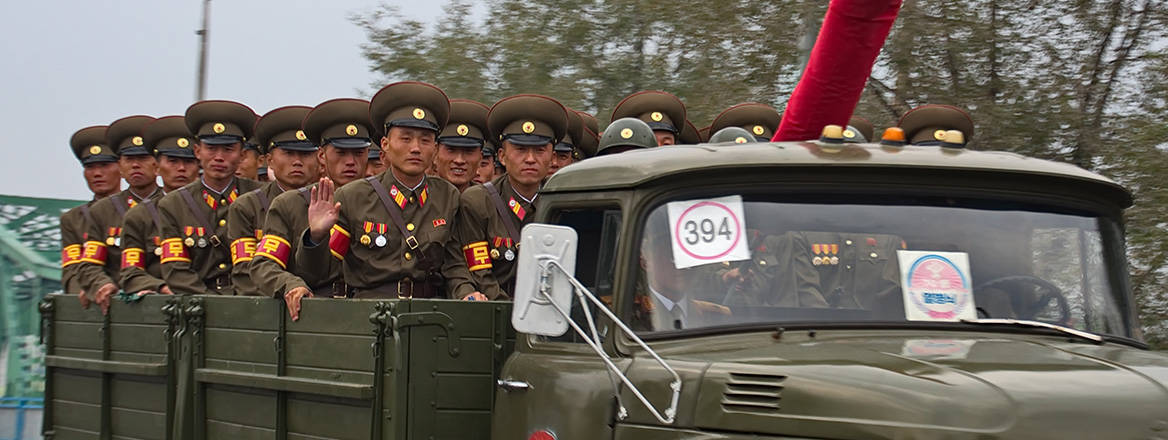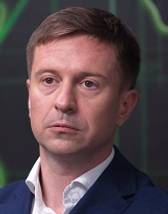North Korea Enters the Fray: Must Ukraine Win a Third World War on its Own?
North Korea’s entry into the Russia–Ukraine war has globalised the conflict, intensifying the risks as Ukraine faces two highly militarised adversaries.
The Russo-Ukrainian war, which since 2022 has been viewed by at least some experts as an acute element of the global confrontation between an axis of authoritarian countries and the West, has ceased to be a regional conflict by definition. North Korea, which signed a strategic partnership agreement with Russia in June 2024 that provides for a military alliance between the countries, has entered the war on the side of Russia, having already sent – according to various estimates – between 10,000 and 15,000 military personnel to participate in it. This has irreversibly changed the dynamics of the war and finally made it global. Comments by some senior officials that the participation of North Korean troops in the war against Ukraine is a good indicator because it means that Russia is desperate are, unfortunately, a false assessment of the situation. In fact, in the European theatre of war, Ukraine now faces two highly militarised nuclear powers, in one of which human lives are not valued very dearly, and in the other of which they are not valued at all.
Russian President Vladimir Putin, who for almost three years has tried with all his might to avoid a politically unpopular general mobilisation, has found a worthy replacement for the almost exhausted resource of Russian prisoners. North Korea, whose Armed Forces number 1.3 million servicemen (with another 560,000 in reserve), is a great additional source of manpower and an alternative to Russian conscripts who have not demonstrated high motivation, surrendering en masse during the Ukrainian Kursk offensive. North Korea’s entry into the war reduces the domestic political risks for the Putin regime, and also allows for a significant reduction in the costs of paying military personnel. In recent months, Russia has been forced to pay each serviceman between $15,000 and 25,000 immediately after they enlist, as well as about $3,000 dollars every month. North Korea, where the highest-paid workers earn $60 a month, and where at least 1 million people starved to death in the 1990s, is capable of sending hundreds of thousands of young soldiers to Russia, who will be happy to fight under any conditions so long as they receive hot food three times a day.
Comments that the participation of North Korean troops in the war against Ukraine is a good indicator because it means that Russia is desperate are a false assessment of the situation
Involving the North Koreans in the war against Ukraine is also not some hasty forced move, as Russia has been trying to recruit them since March 2022. Even at the beginning of the Russian invasion of Ukraine, Valery Korovin, who is the right-hand man of the Russian ultra-nationalist ideologue Alexander Dugin and acts in the interests of Russian military intelligence, appealed to the government of North Korea to consider sending its troops to participate in the war, motivated among other things by the need to gain practical experience, which they will need in the future war against the ‘Western imperialists’. In August 2022, Russian state media announced the deployment of North Korean troops in the war against Ukraine (at least 100,000 troops were mentioned at the time), but later the Russian Ministry of Foreign Affairs denied this, and instead the mobilisation of reservists began, which led to a mass exodus of young Russians from the country. It is difficult to say what exactly the obstacle was then – a reluctance to enter into an official military alliance with the most notorious totalitarian regime on the planet due to the resultant loss of image in the international arena, or the fear that this would constitute a serious crossing of the West’s red lines (according to the 2024 agreement, Russia undertakes to provide military aid to North Korea, which declared in 2013 that it was at war with South Korea, whose security is guaranteed by Japan and the US). It is likely that in the two years of war that followed, Putin became sceptical about the existence of any particular Western red lines, or indeed the morality of the international community.
However, the worst news is not even that Russia has brought North Korean troops to Europe, but that Russia itself is turning into North Korea. Since 2012, Russia has been implementing a national ‘besieged fortress’ strategy, according to which Putin's regime is deliberately engaged in isolating Russians from the outside world, curtailing even the few weak elements of democracy, inciting anti-Western sentiment, militarising society and building a system based on one-man leadership, which has involved a transition from the previous model of relatively mild authoritarianism known as ‘sovereign democracy’ to the Russian analogue of the North Korean Juche ideology. However, after 2021, the ‘besieged fortress’ strategy, which involved internal isolation as a way to preserve the regime, has been supplemented by two new strategies that required Russia to start military expansion and form new geopolitical alliances.
Despite the reluctance of Western leaders and societies to recognise it, a global war, the goal of which is to destroy the existing international system and build a new one, is already underway
The first strategy can be conventionally called the ‘collapse of the Pax Americana world’, which involves the end of the period of US dominance and the splintering of the modern globalised world into spheres of influence, where Russia should have its own sphere. Its main elements were outlined in an article by the former assistant to the President of Russia, Vladyslav Surkov entitled ‘Where Did the Chaos Go? Unpacking Stability’, which was published a few weeks before Russia's full-scale invasion of Ukraine. According to Surkov's vision, the current geopolitical situation in which there are a large number of completely independent states is anomalous, and in the future the world will return to an imperialist model where small states are controlled by large ones, which should include Russia. In his article, he also notes that military expansionism is the only way to avoid a liberal revolution in Russia, and emphasises that the same behaviour of ‘exporting chaos’ should also be expected from China in the near future. These ideas are consistent with those expressed by Vladimir Putin in his interview with Tucker Carlson, and also indicate that the Russian regime has another strategy, which can be called the ‘junior partner’ strategy. This strategy – which involves joining another anti-US player, China, and acting in the interests of its victory – is described in detail in an article by the deputy director of the Institute of Russian-Chinese Strategic Cooperation, Andrei Devyatov, entitled ‘The New Horde as a Key to Russia's Victory in the Third World War’. In his speech at a meeting with the Public Chamber of the Russian Federation in 2023, Putin stated that choosing vassal dependence on the Horde, as in the times of Alexander Nevsky, is the only way to protect Russia from the West.
Despite the reluctance of Western leaders and societies to recognise it, a global war, the goal of which is to destroy the existing international system and build a new one, is already underway, and even the complete capture of Ukraine by Russia will not stop it. Putin's statements that Russia has no interests west of Ukrainian borders are reminiscent of Hitler's famous words before the invasion of Poland that France had nothing to fear, as Germany's borders in the west were forever delineated by the fortifications of the German Western Wall. It would be naive to trust the promises of the Russian leadership, which until the last moment denied its intention to attack Ukraine. Russia's future geopolitical behaviour is determined by its current militarisation. A country where 40% of the budget goes towards financing the war, whose Armed Forces have already grown to almost 2.4 million, and which forms military alliances with the most toxic governments in the world, is not going to stop. A global war is already underway, and if the West is determined that the Ukrainians must win it on their own, the only way they can do this is by obtaining large quantities of modern weapons. A few hundred outdated Leopard 1s and a few dozen under-modernised F-16s will not be sufficient to give Ukraine fighting parity, let alone an advantage. If the West really does not want to shed the blood of its own soldiers in this war, it should hurry to arm Ukrainian soldiers while there are still some left.
© Oleksandr Danylyuk, 2024, published by RUSI with permission of the author
The views expressed in this Commentary are the author’s, and do not represent those of RUSI or any other institution.
For terms of use, see Website Ts&Cs of Use.
Have an idea for a Commentary you’d like to write for us? Send a short pitch to commentaries@rusi.org and we’ll get back to you if it fits into our research interests. Full guidelines for contributors can be found here.
WRITTEN BY
Oleksandr V Danylyuk
RUSI Associate Fellow, Military Sciences
- Jim McLeanMedia Relations Manager+44 (0)7917 373 069JimMc@rusi.org



